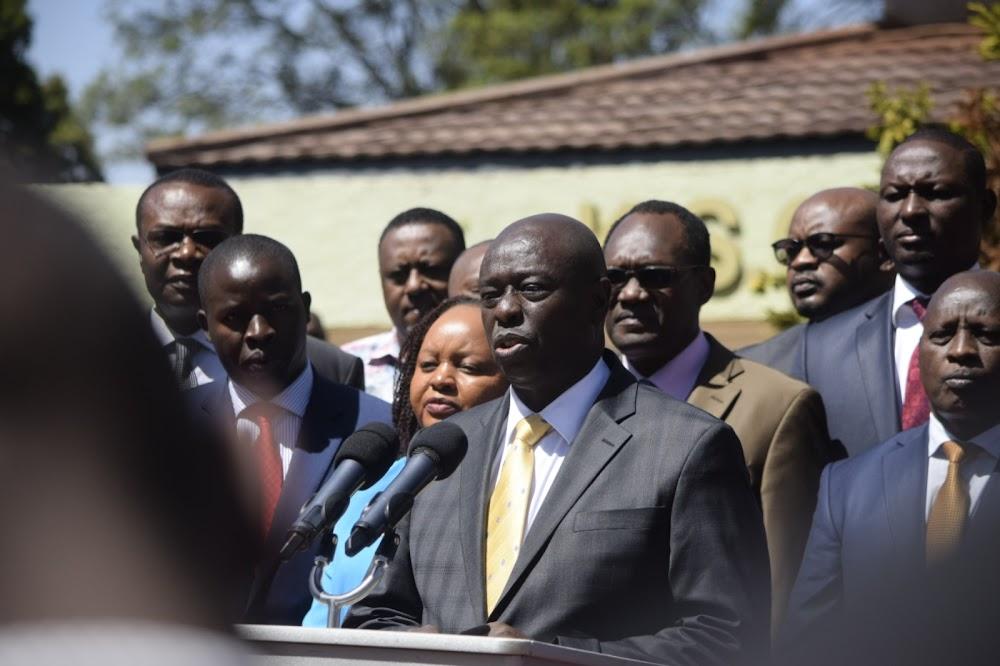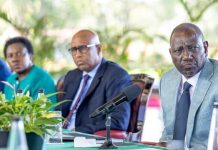Africa-Press – Kenya. National and county governments have failed to agree on the amount of money to be disbursed to devolved units by the National Treasury in the next financial year. Following the stalemate, Deputy President Rigathi Gachagua announced that a special committee had been formed to unlock the impasse.
The Deputy President said governors were demanding Sh425 billion but the Commission on Revenue Allocation has proposed Sh407 billion with the National Treasury indicating it can only raise Sh380 billion.
“We have not been able to reach a decision but I want to confirm that participants are alive to the economic situation that is facing the country and are embracing the give-and-take spirit,” he said.
“The committee will report back to us in a week on the agreed amount that will go to counties.”
Gachagua made the remarks after chairing the 19th Ordinary Session of the Intergovernmental Budget and Economic Council (IBEC) meeting on Thursday at Kenya School of Government in Kabete, Nairobi.
In attendance were governors, and top county and national government officials. In the 2021/2022 Financial Year, county governments received Sh340.4 billion as their equitable share of revenue raised nationally.
The amount was equivalent to Sh370 billion in appropriations as per the County Allocation of Revenue Act (CARA) 2021. Article 203(2) of the Constitution gives the minimum threshold on the amount of equitable revenue to be allocated to counties as 15 per cent of the latest audited revenues.
CRA is supposed to recommend to the National Assembly the basis for equitable sharing of revenues raised nationally. Specifically, it decides how much revenue will be divided between the national government and the county governments, and how much each county government will receive.
Gachagua nonetheless said the meeting agreed that counties entitled to monies from mining resources should get their share of dues forthwith. “A team is working on a formula of sharing the revenues among communities,” he added.
On January 18, a 15-member committee was inaugurated to break the stalemate surrounding the sharing of Sh7.5 billion mining royalties stuck at the National Treasury.
The government has been collecting mineral royalties but holding it over the failure of the Treasury to unlock a legal instrument required to release the funds.
Mining Cabinet Secretary Salim Mvurya, while inaugurating the Minerals Royalty Committee at his office, said the regulations are expected to be out by March.
During the meeting IBEC meeting on Thursday, it also emerged that county governments paid Sh1.7 billion to settle pending bills that had been declared ineligible, it has emerged.
Controller of Budget Margaret Nyakang’o said the amount was part of Sh107 billion that had been declared ineligible after a special audit was conducted on unsettled dues as of 30 June 2020.
“I do not understand how and why these ineligible bills were settled,” Nyakang’o told the 19th Ordinary Session of the Intergovernmental Budget and Economic Council (IBEC) on Thursday.
Ineligible pending bills refer to those bills that are not fully supported by requisite documentation, instances where goods were partially delivered or not delivered or instances where services were partially or not rendered or works not done.
She noted that the Special Report on pending bills by the Auditor General showed counties owed suppliers a total of Sh152.5 billion for services and goods delivered.
“Of the total, Sh45.5 billion were declared eligible and Sh107 billion ineligible,” she said. Governors were asked to submit a fresh and comprehensive list of pending bills.
Nyakang’o told the county bosses the pending bills should be those captured by the Office of the Auditor General and ones which were incurred after a special audit.
“The cut-off should be 30 June 2022,” Nyakang’o told governors She further said asked those who have carried audit reports to submit them to the National Treasury and Office of Controller of Budget.
“All eligible pending bills should be budgeted as first charge in the next financial year in line with Regulation 55 (2) (b) of the Public Finance Management Regulations (county governments), 2015,” she added.
For More News And Analysis About Kenya Follow Africa-Press






